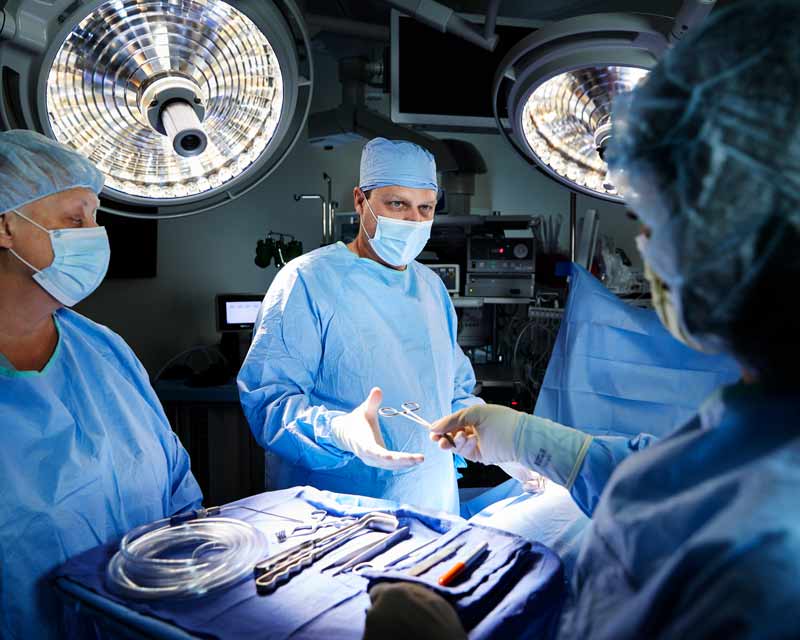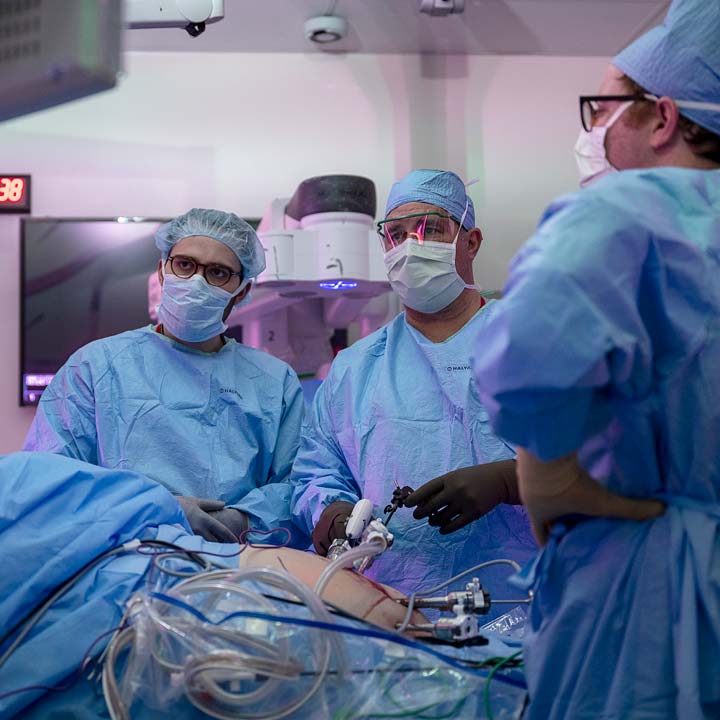
Comprehensive Esophageal Health Center opens with more convenient, streamlined care
 Among the first of its kind in the nation, a new center focusing on colorectal cancer at The Ohio State University Comprehensive Cancer Center – Arthur G. James Cancer Hospital and Richard J. Solove Research Institute (OSUCCC – James) is expected to get patients the treatment they need quicker, improve multidisciplinary care coordination and result in a better overall patient experience.
Among the first of its kind in the nation, a new center focusing on colorectal cancer at The Ohio State University Comprehensive Cancer Center – Arthur G. James Cancer Hospital and Richard J. Solove Research Institute (OSUCCC – James) is expected to get patients the treatment they need quicker, improve multidisciplinary care coordination and result in a better overall patient experience.
“Our vision is to be a world-class center that delivers high-quality, safe, cutting-edge care for all patients with colorectal cancer,” says colorectal surgeon Matthew Kalady, MD, director of the Division of Colon and Rectal Surgery.
It’s common for patients with newly diagnosed cancer of the colon or rectum to first see a colorectal surgeon. If needed imaging tests haven’t been completed, an appointment for a computed tomography scan, magnetic resonance imaging or other testing may come next. That’s typically followed by trips to see a medical oncologist, a radiation oncologist and, if necessary, other specialists.
This process can take weeks, which means it might be a month or more before a patient actually undergoes surgery or begins other treatment. For someone with cancer, repeated trips to see specialists may be inconvenient, and delays in treatment can be anxiety-provoking.
While patients with colorectal cancer at the OSUCCC – James have always received excellent care, the new Colorectal Cancer Center will simplify procedures for patients and allow for better collaboration among the multidisciplinary specialists involved in their treatment.
“Getting people in the door faster and getting them into treatment faster are some of our key objectives,” Dr. Kalady says. “I look at this as the answer to ‘What would you want if this were you or your spouse or your parents seeking treatment? How would you want them to be treated? How quickly would you want them to be seen?’”
With its opening, physicians within the OSUCCC – James, the Ohio State Wexner Medical Center and those outside the system will call a centralized number to refer their patients to the Colorectal Cancer Center.
A colorectal cancer specialist will obtain patient information and determine if any additional lab tests, imaging studies or other preparations are needed ahead of time. If so, they’ll help make any arrangements.
They’ll then schedule appointments for the patient with a colorectal surgeon, medical oncologist, radiation oncologist and any other recommended specialists, all on the same day, usually within days.
“When the patient shows up, everything is done. We have a plan in place, and they can start treatment, hopefully within a week or so,” Dr. Kalady says.
All of the multidisciplinary team members who might be involved in a patient’s care — colorectal cancer surgeons, medical oncologists, radiation oncologists, surgical oncologists, pathologists, radiologists, genetics counselors and other experts such as fertility specialists, urologists or gynecologists — will work together closely to create each patient’s treatment plan.
“I think anytime there’s good coordination of care and communication between the different specialties and with patients, outcomes will improve,” Dr. Kalady says.
Center staff will see all patients with colorectal cancer or anal cancer, as well as those in post-treatment surveillance or at high-risk for the disease. Five specialty programs for patients with unique multispecialty needs will provide additional concentrated care and further set the center apart. These programs will focus on rectal cancer, early-age onset colorectal cancer, hereditary colorectal cancer and genetics, stage IV colorectal cancer and anal cancer screening and treatment.
Clinical trials for people with colorectal cancer, many of which the Ohio State Wexner Medical Center is at the forefront of nationally, will be based out of the Colorectal Cancer Center as well. Ideally, nearly all patients will participate in one or more trials.
Researchers will also be studying patients at the center to learn all they can about the patients themselves, their treatments and their outcomes.
To evaluate the effectiveness of the center, staff will look at:
While the center will offer a new approach to care, patients can expect the same compassion and expertise that they’ve always enjoyed from the clinicians at the OSUCCC – James.
“Our experts are kind and caring people,” Dr. Kalady says. “But they’re also leaders in their field, both in taking care of patients and in studying colorectal cancer and doing research.”
The James has always been a leader in innovation and improving treatment for patients with cancer. The new Colorectal Cancer Center is just one more example of that.
“I’m very excited to see where this can go in terms of providing even better care for our patients and growing the number of people we can care for in Ohio and beyond,” Dr. Kalady says.